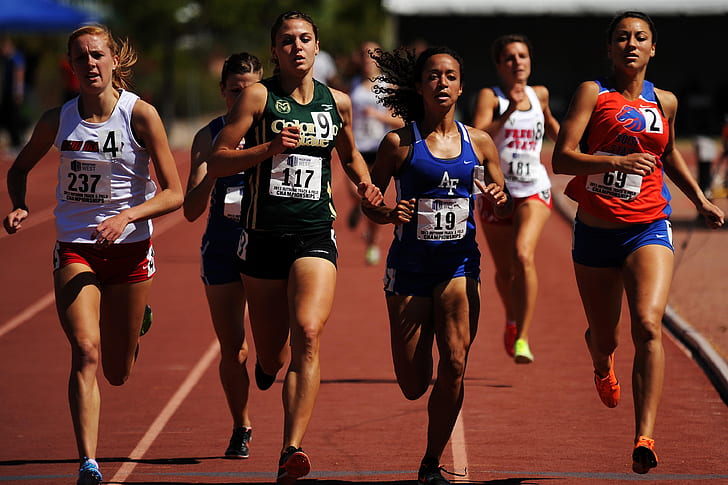Do Transgender Women Deserve a Seat in the 2020 Olympics?
Is America prepared to have a transgender woman compete in the 2020 Olympics?
March 13, 2020
For the first time in history, a biological male who openly identifies as a woman will compete in the Olympic Trials. Megan Youngren strives to represent the USA women’s track team in the 2020 Summer Olympics.
According to the Daily Signal, “Youngren qualified for the Trials after a strong performance on Dec. 8, 2019, in the California International Marathon.” Youngren finished in 40th place with a time of 2:43:52, one of the 63 to advance to the Olympic Trials.
Megan Youngren began running to lose weight and wanted to stay healthy after she began identifying as a female. According to Sports Illustrated, she wanted to avoid the rashes and blisters, also known as shingles, which sometimes come as a side effect of transitioning.
In 2011, when Youngren was still in college, she began taking hormone medication. She announced that she was transgender in 2012 and did the final paperwork in 2019.
However, Youngren’s participation allows her an unfair advantage. Her physical features allow her to have an upper hand against the other competitors.
“The International Olympic Committee requires transgender athletes in women’s sports to keep their testosterone levels below a certain threshold, but scientific research suggests that suppressing testosterone isn’t enough to neutralize biologically male athletes’ inherent physiological advantages,” says Conservative Fighter.
Studies have shown that women have higher body fat than men, and men develop larger muscles and hearts. Women’s joint tissues are also more unstable than men’s, causing frequent injuries. For these reasons, biological males and females have different athletic stances, presenting a disadvantage to biological females who would compete with Youngren.
According to SportsRec, “The gender gap in athletic performance, as shown in records from Olympic competition, has remained stable since 1983. The mean difference has been about 10% between men and women for all events. The mean gap is 10.7% for running.”
Moreover, former US Olympic athlete Rebecca Dussault said to the Daily Caller News Foundation, “We invest so much money into keeping sports fair, and this will blow the cap off of it. Every women’s record in sports will fall.”
America has faced something like this before. Mokgadi Caster Semenya won an Olympic gold medal for middle-distance, representing South Africa in the women’s championships. Semenya was accused of being transgender and a male. Many were concerned about what they perceived as an unfair advantage and asked South African athletic experts to confirm her gender.
South African athletic experts confirmed that she was a woman, and Semenya said to Vox news, “I am a woman, and I am fast.”
Furthermore, Gavin Hubbard competed as a male in New Zealand for men’s weightlifting seven years ago. He transitioned into a female and is now competing for the women’s weightlifting. Now Laurel Hubbard, she broke a record of 133kg, which is her new personal best. According to Inside the Games, “Hubbard’s 133kg was the fifth-best snatch in the women’s super-heavyweights on the International Weightlifting Federation (IWF) rankings.”
In addition, Andraya Yearwood and Terri Miller, both transgender, took home first and second place in the Connecticut indoor track champions. The third-place winner, a biological female, lost to Yearwood by 0.22 seconds.
These stories, among others, reveal that the world is unsettled about transgender competition. The 2020 Olympics is not the time or place to address the issue. For now, there is too much controversy between transgender participants and the other athletes.
But acceptance is different from equality. Transgender competitors will eliminate all opportunities for biological women to take home the gold because of their physical characteristics. Though they might be accepted in society, they will never be equal to their competitors.
Having transgender people compete in the Olympics may happen in the future, but our society isn’t ready to experience such an impactful change.






